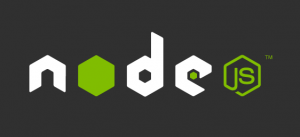 The Notepad++ editor is the Swiss Army knife of text editing. With hundreds of plugins, the tool can be configured as an editor to almost any development workflow. In the previous post, we reviewed how to add comments to a JSON configuration file. We will now create a custom editor that supports those comments and the custom configuration keywords.
The Notepad++ editor is the Swiss Army knife of text editing. With hundreds of plugins, the tool can be configured as an editor to almost any development workflow. In the previous post, we reviewed how to add comments to a JSON configuration file. We will now create a custom editor that supports those comments and the custom configuration keywords.
Continue reading
Tag Archives: Software Sagacity
Node.js – Adding comments to JSON files
 Due to its tight coupling and interoperability with JavaScript, JSON has become the standard data transfer format for most JavaScript and Node.js applications. As opposed to its primary competitor format XML, JSON is much more compact and efficient for data transfer, and has a direct one-to-one mapping with the memory structures in the code. What JSON doesn’t enable, however, are comments in the JSON files.
Due to its tight coupling and interoperability with JavaScript, JSON has become the standard data transfer format for most JavaScript and Node.js applications. As opposed to its primary competitor format XML, JSON is much more compact and efficient for data transfer, and has a direct one-to-one mapping with the memory structures in the code. What JSON doesn’t enable, however, are comments in the JSON files.
Continue reading
Node.js – Passing Arrays in the Querystring
 One of the enticing attributes of Node.js development is the high level of flexibility offered by the language. Whereas other web application frameworks often have more stringent and developed patterns for development tasks, Node is more of a Wild West, where the recommended implementation can be anyone’s game. One of those open-ended tasks is passing arrays through the Querystring.
One of the enticing attributes of Node.js development is the high level of flexibility offered by the language. Whereas other web application frameworks often have more stringent and developed patterns for development tasks, Node is more of a Wild West, where the recommended implementation can be anyone’s game. One of those open-ended tasks is passing arrays through the Querystring.
Continue reading
Elements of Enterprise-Grade Web Frameworks – Part 5: Lazy-Loaded Data Grids
![]() The lazy-loaded data grid has been a key feature of desktop applications, and is slowly making its way into web applications. Lazy-loading enables clients to view large amounts of data by initially loading only a small portion of the results. As the client scrolls toward the bottom of the screen, the next set of data is automatically loaded from the server.
The lazy-loaded data grid has been a key feature of desktop applications, and is slowly making its way into web applications. Lazy-loading enables clients to view large amounts of data by initially loading only a small portion of the results. As the client scrolls toward the bottom of the screen, the next set of data is automatically loaded from the server.
Continue reading
JavaScript Anonymous Functions – Blessing or a Curse?
 The growing popularity of AJAX and jQuery has significantly increased the use of anonymous functions in client-side JavaScript code. Although anonymous functions provide a very convenient way to decrease the amount of code necessary in an app, their prevalence and necessity may portend to structural deficiencies in either the language or development tools.
The growing popularity of AJAX and jQuery has significantly increased the use of anonymous functions in client-side JavaScript code. Although anonymous functions provide a very convenient way to decrease the amount of code necessary in an app, their prevalence and necessity may portend to structural deficiencies in either the language or development tools.
Continue reading







